Hair Loss Shampoo Guide: Benefits, Myths & Alternatives
Understand what goes into these products to learn how they can benefit you.
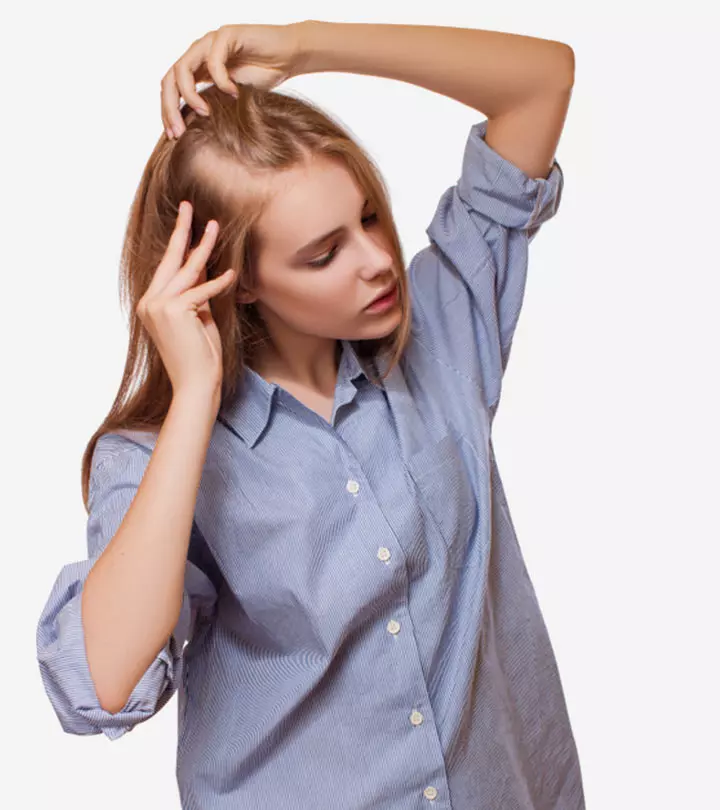
Image: Shutterstock
It is common for hair loss shampoos to make impressive claims about their effectiveness. For example, some products promise to increase hair growth and prevent thinning hair. We will tell you whether this is true or a marketing ploy to get your attention.
This article provides an overview of the various shampoos available for treating hair loss and how they work. Check out all the details below.
In This Article
What Is Hair Loss Shampoo?

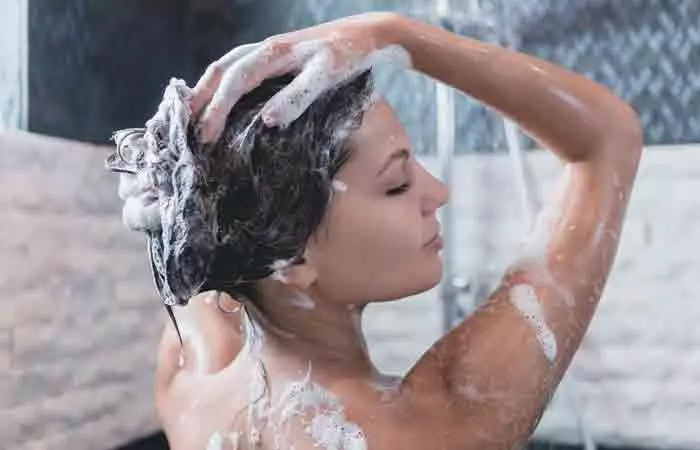
Shampoos that stop hair loss and promote hair regrowth are called hair loss shampoos. They usually contain DHT blockers, ketoconazole, hydrocortisonei A steroid hormone used to treat itching, redness, and rashes caused by various skin conditions. , or volumizing proteins. DHT (dihydrotestosterone) is a hormone that is known to shrink hair follicles, resulting in thinning hair (1). So, a DHT blocker may help you greatly to prevent unwanted hair loss.
Another common component used in hair loss shampoos is panthenol, known for its fortifying properties. Research suggests that D-Panthenol, a form of vitamin B5 and common ingredient in hair loss shampoos, may help boost hair growth by improving the health of hair follicle cells.It may increase cell activity and reduce aging and damage markers, making hair follicles more active. The ingredient may also stimulate growth signals that extend the hair’s growing (anagen) phase. It may help enhance blood circulation around hair follicles by increasing VEGF, a key factor in blood vessel activation. So, this suggests that D-Panthenol supports stronger, healthier hair by promoting cell growth and reducing hair loss factors (2).
Ingredients such as caffeine that boost blood circulation are also used in hair loss shampoos to promote hair growth and hair restoration (3).
A few examples of best shampoos for hair loss include Nioxin, SIMFORT Carbonic Acid Shampoo, and Ultrax Hair Surge Hair Loss Shampoo.
Disclaimer: This information is based on general hair care practices and anecdotal evidence. It is not sponsored, affiliated with, or endorsed by any brand.
 Did You Know?
Did You Know?Keep reading to find out if these shampoos really work!
Key Takeaways
- Hair loss shampoos contain caffeine, DHT blockers, ketoconazole, and panthenol that help strengthen your hair and check thinning.
- You cannot trust all the tall claims that manufacturers make. In this case, there is little evidence to suggest that these shampoos stop hair loss.
- Instead, you can go for drugs like finasteride and minoxidil for promising results.
Does Hair Loss Shampoo Really Work To Stop Hair Loss?

No, hair loss shampoos cannot in hair loss prevention. However, they may help in promoting hair growth and adding thickness and volume.
- If your hair loss is associated with a scalp condition such as seborrheic dermatitisi A common chronic skin condition that affects the oily areas of the body, especially the scalp, causing flaking and scaly patches. or psoriasisi A chronic skin condition that causes itchy skin, rashes, and scaly patches, mostly on the knees, scalp, elbows, and trunk. , then using shampoos with antifungal or anti-inflammatory agents may help reverse it. According to anecdotal evidence, both ketoconazole and hydrocortisone help in boosting hair growth to some extent. You can find the best ketoconazole shampoos here. Keep in mind that ketoconazole is not approved by FDA for treating hair loss.
- Similarly, shampoos with DHT blockers are said to suppress DHT, a hormone that is known to shrink the hair follicles. So, there is a chance that using these shampoos in your hair care routine may help in minimizing hair thinning.
- Shampoos containing caffeine and adenosine may effectively reduce hair loss and promote healthier hair. Caffeine is known to boost cell activity and metabolism that may help extend the hair growth phase and prevent early hair loss. Similarly, adenosine may support hair growth and thicken hair strands. A study tested a shampoo containing both caffeine and adenosine on 77 people aged 18 to 60. After three months of use, results showed that the shampoo significantly improved hair density and reduced hair loss, though hair thickness remained unchanged. Most participants (71.05%) reported being happy with the results (5).
Tanya M, a lifestyle blogger with hair fall struggles, shared her experience of using a caffeine-based shampoo for hair loss. She used to experience severe hair fall and had very thin hair that made her scalp visible. Despite trying various hair products, nothing had helped. However, after using caffeine-based shampoos, she was surprised by the results and now strongly recommends them. She notes, “I’ve been using only the caffeine shampoo (rather than chop and change like I usually do. (I have so many different brands I can open a shop) for the last 2 months and the results are AH-MA-ZING! I have so much new hair growth and when washing my hair and in between washes I have minimal hair fall (i).”
- Finally, shampoos with panthenol are claimed to add thickness to the hair. Thus, they are known as hair-thickening shampoos. This derivative of vitamin B2 is claimed to help in attracting moisture to the hair strands, which makes the hair look thicker, healthier, and shiner. However, there is no scientific evidence to prove it is an effective hair loss shampoo.
 Did You Know?
Did You Know?Thus, there is only limited evidence regarding the efficacy of hair loss shampoos. Find out the alternative hair treatments to fight hair loss in the next section.
Alternative Treatments For Hair Loss
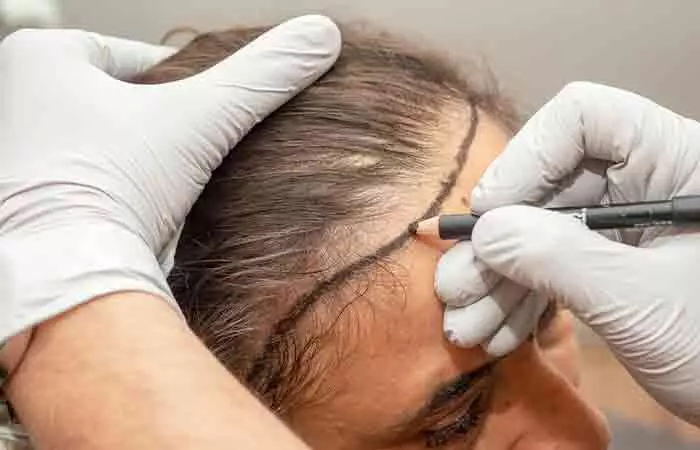
- Drugs: The most popular drugs used to treat hair loss, especially male pattern baldness, are finasteride and minoxidil. These drugs have shown promising results in clinical trials (6), (7).
- Diet Changes: Micronutrients like vitamins A, B, C, D, E, iron, selenium, and zinc play a key role in hair growth by supporting the hair follicle cycle and immune function. A lack of these nutrients may contribute to hair loss (8). Therefore, consuming a well-balanced diet rich in these vitamins and minerals may help strengthen hair, reduce shedding, and support overall scalp health.
- Lifestyle Changes: There are a few lifestyle changes you can make that may help treat hair loss, such as:
- Manage Stress: Stress can contribute to hair loss by disrupting hormonal balance (9). So practice relaxation techniques like yoga, meditation, or exercise that help reduce it.
- Practice Gentle Hair Care: Avoid excessive heat styling, harsh chemical treatments, and aggressive brushing to prevent unnecessary breakage and hair fall (10).
- Get Enough Sleep: Poor sleep can weaken hair growth (11). So, adequate rest is essential for healthy follicles and overall hair health.
- Quit Smoking: Smokers have a higher risk of hair loss (12). Quitting smoking may help improve scalp circulation and promote healthier, stronger hair.
- Limit Alcohol Consumption: While alcohol isn’t directly linked to hair loss, reducing intake may support better blood circulation, which can benefit hair growth.
- Hair Transplant: Hair transplant offers the best long-term results despite being on the more expensive side. In most cases, hair transplants can help manage hair loss successfully with little to no maintenance. Apart from the cost and recovery time, hair transplants are a great option to treat chronic hair loss.
According to the International Society of Hair Restoration Surgery: 2025 Practice Census Survey Results, there were a total of 149,254 surgical hair restoration procedures carried out in the United States and Canada in 2025. Worldwide, the number of surgical patients undergoing these procedures amounted to 628,604. On average, approximately 87.3% of these procedures were performed on men, while the remaining 12.7% were performed on women.
The cost of a hair transplant treatment may vary from country to country. According to a 2025-2025 survey, the total cost of a hair transplant in the US was approximately 13,610 dollars. Further, the price was the highest for Canada at nearly 17,500 US dollars, followed by 2,675 US dollars in Turkey. Check out the graph below to learn what a hair transplant treatment may cost in other countries.

Total Cost Of Hair Transplant Worldwide
Source: Hair transplant cost in select countries in 2025 and 2025Infographic: Taking Care Of Your Mane If You Have Hair Loss Issues
Hair loss is due to various underlying factors that may not let your hair — new or old — grow. They leave your tresses fragile and more prone to breakage. Thus, you need to be extra cautious and gentle with your hair. Check out the infographic below to learn the hair loss remedies or tips for maintaining strands with hair loss issues.
Some thing wrong with infographic shortcode. please verify shortcode syntax
It is important to state that while many hair loss and hair fall shampoos declare that they can fend off hair loss, you won’t see results overnight. Hair loss shampoos are not miraculous elixirs that can vanquish the villain of the story, i.e., severe shedding. The best way to treat hair loss is to get to the root of the matter – its cause. Once you figure out the cause of your hair fall, choose a shampoo that addresses that specific issue. For example, if your hair fall is caused by inflammation or fungal infection, opt for an anti-inflammatory or antifungal shampoo. If the hair loss is caused due to hormonal issues, you should look for a shampoo with DHT blockers, like a caffeine shampoo. Remember to consult a doctor to diagnose the true cause of your hair loss and get proper hair loss treatment if needed.
Frequently Asked Questions
What shampoos are causing your hair to fall out?
Shampoos with SLES, SLS, parabens, phthalates, and mineral oil may cause hair fall. If your shampoo has a high pH level, it could also lead to hair damage and hair fall. Using the wrong shampoo for your hair type may cause hair fall as well.
Is biotin shampoo good for hair loss?
Anecdotal evidence suggests that it is an effective hair loss shampoo. Using biotin shampoo may improve hair health, in turn reducing hair loss. But it is better to try biotin supplementation over a biotin shampoo.
Can I use hair loss shampoos along with other hair loss treatments?
Combining hair treatments like minoxidil and finasteride with ketoconazole shampoos helps boost hair growth and improves hair health. However, using ketoconazole and zinc pyrithione shampoo with minoxidil is not recommended as there is a risk of harmful interaction between the ingredients.
Are there any natural alternatives to hair loss shampoos?
Yes, there are natural alternatives that can reduce hair loss and promote hair growth. Massaging the head with essential oils like peppermint, rosemary, or lavender mixed with carrier oil improves blood circulation to the scalp. Onion juice contains sulfur which promotes hair growth by improving collagen production. Antioxidant-rich green tea and aloe vera can also encourage hair growth and health.
How do I know if a hair loss shampoo is right for me?
Before picking up any hair loss shampoo, you must know your hair type and choose a product formulated for your hair and scalp type. Understand the underlying reason for the hair loss and choose sulfate-free shampoos with natural active ingredients.
Can I use hair loss shampoos if I have sensitive skin?
Sensitive skin is prone to react with harsh chemicals leading to itching and rashes. Specially formulated hair loss shampoos, free of parabens, sulfates, and fragrances, are suitable for sensitive skin. However, perform a patch test to check for adverse reactions.
How often should I use a hair loss shampoo?
Using a hair loss shampoo 2-3 times per week is recommended. Excessive shampooing can strip the hair of its natural oils and damage the hair strands.
Can hair loss shampoos be used on all hair types?
Yes, you can use hair loss shampoos on all hair types, provided you choose the shampoo based on the specific hair type, scalp type, and reasons for hair loss.
Struggling with hair loss? Find the perfect shampoo to address your concerns! Discover expert tips and recommendations in the following video and say goodbye to your worries! Don’t miss out—click to watch now!
Personal Experience: Source
StyleCraze's articles are interwoven with authentic personal narratives that provide depth and resonance to our content. Below are the sources of the personal accounts referenced in this article.
i. Hi-Care Beauty Range
https://thingsinlifeilove.blogspot.com/2016/07/hi-care-beauty-range.html
References
Articles on StyleCraze are backed by verified information from peer-reviewed and academic research papers, reputed organizations, research institutions, and medical associations to ensure accuracy and relevance. Read our editorial policy to learn more.
- Cause of Androgenic Alopecia: Crux of the Matter
https://www.ncbi.nlm.nih.gov/pmc/articles/PMC4174066/ - Dexpanthenol Promotes Cell Growth by Preventing Cell Senescence and Apoptosis in Cultured Human Hair Follicle Cells
https://pubmed.ncbi.nlm.nih.gov/34698060/ - Caffeine as an Active Molecule in Cosmetic Products for Hair Loss: Its Mechanisms of Action in the Context of Hair Physiology and Pathology
https://pmc.ncbi.nlm.nih.gov/articles/PMC11720832/ - Female pattern hair loss: Current treatment concepts
https://www.ncbi.nlm.nih.gov/pmc/articles/PMC2684510/ - Anti-hair loss effect of a shampoo containing caffeine and adenosine
https://pubmed.ncbi.nlm.nih.gov/38764299/ - Evaluation of efficacy and safety of finasteride 1 mg in 3177 Japanese men with androgenetic alopecia
https://pubmed.ncbi.nlm.nih.gov/21980923/ - An open randomized comparative study of oral finasteride and 5% topical minoxidil in male androgenetic alopecia
https://pubmed.ncbi.nlm.nih.gov/15316165/ - The Role of Vitamins and Minerals in Hair Loss: A Review
https://pubmed.ncbi.nlm.nih.gov/30547302/ - Burden of hair loss: stress and the underestimated psychosocial impact of telogen effluvium and androgenetic alopecia
https://pubmed.ncbi.nlm.nih.gov/15304082/ - Hair Cosmetics: An Overview
https://pmc.ncbi.nlm.nih.gov/articles/PMC4387693/ - Evaluation of Sleep Disturbance in Alopecia Areata through Questionnaire: Pittsburgh Sleep Quality Index as a Reasonable Tool
https://pmc.ncbi.nlm.nih.gov/articles/PMC10258550/ - Cigarette Smoking Alcohol Consumption and Risk of Alopecia Areata: A Population-Based Cohort Study in Taiwan
https://pubmed.ncbi.nlm.nih.gov/32761499/
Read full bio of Tiffany Young
Read full bio of Annie Jangam
Read full bio of Eshna Das
Read full bio of Swathi E






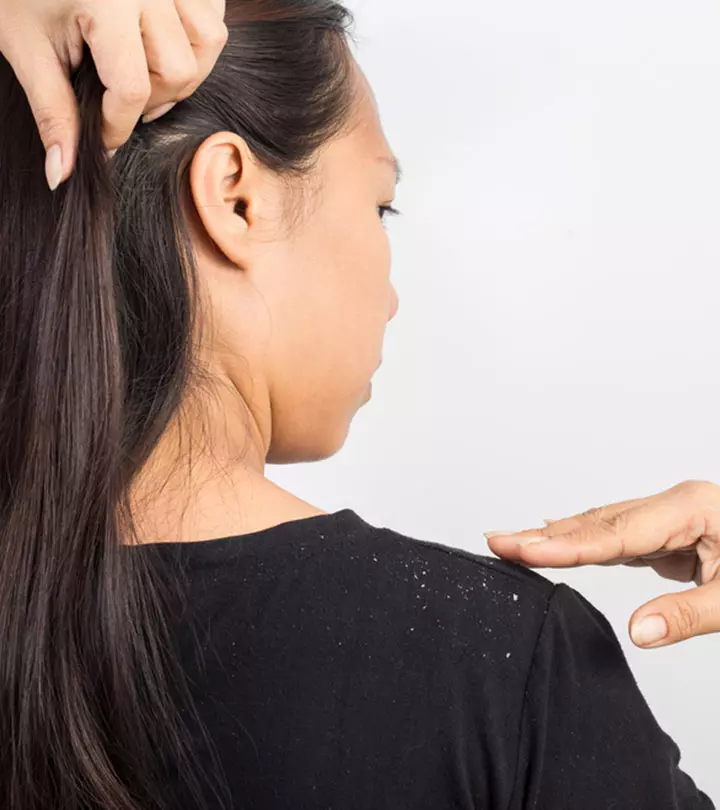
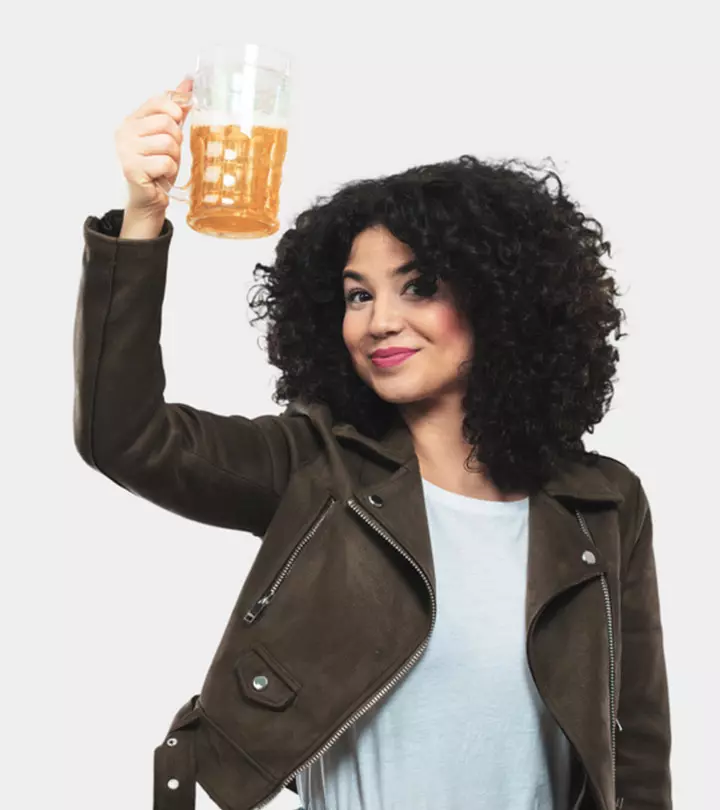

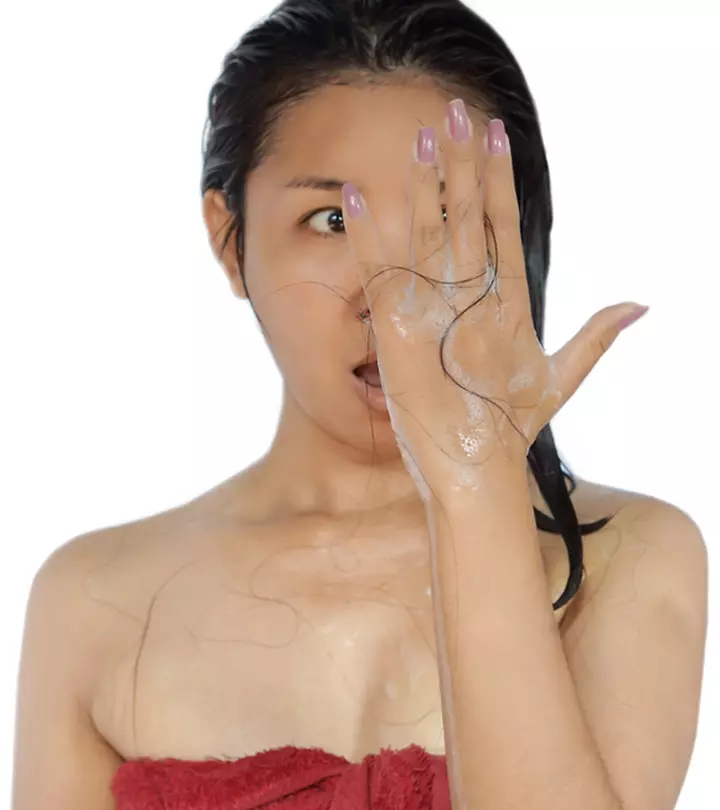
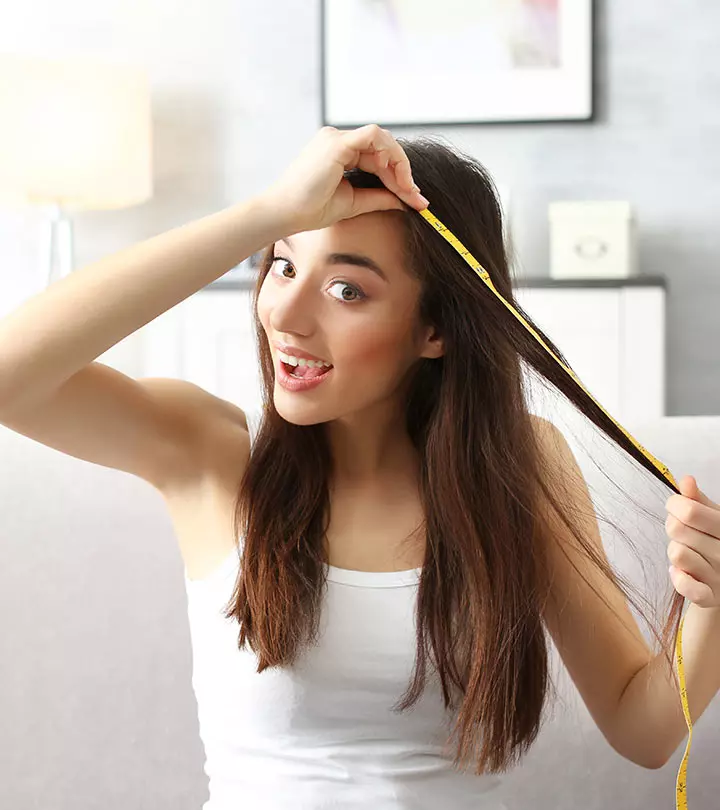

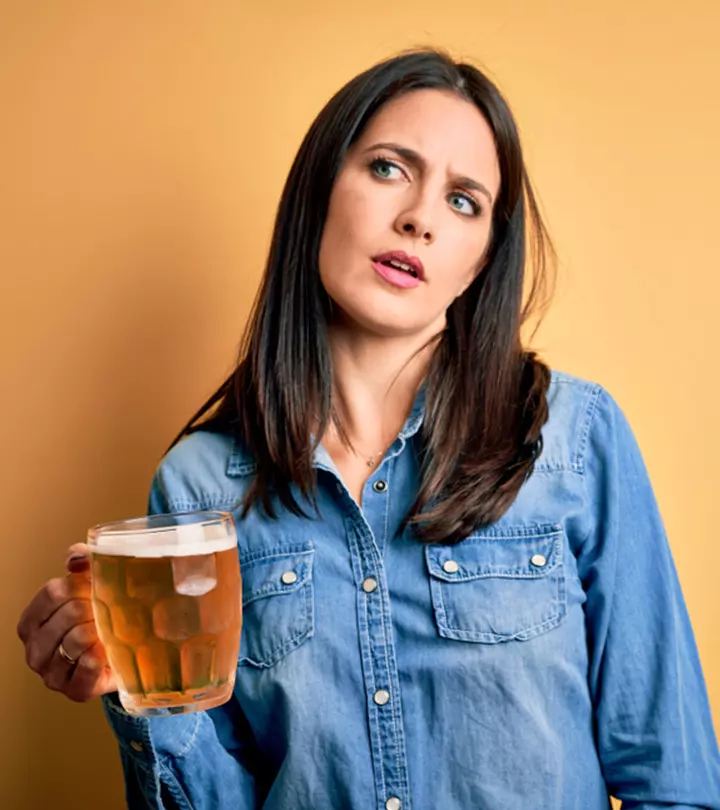
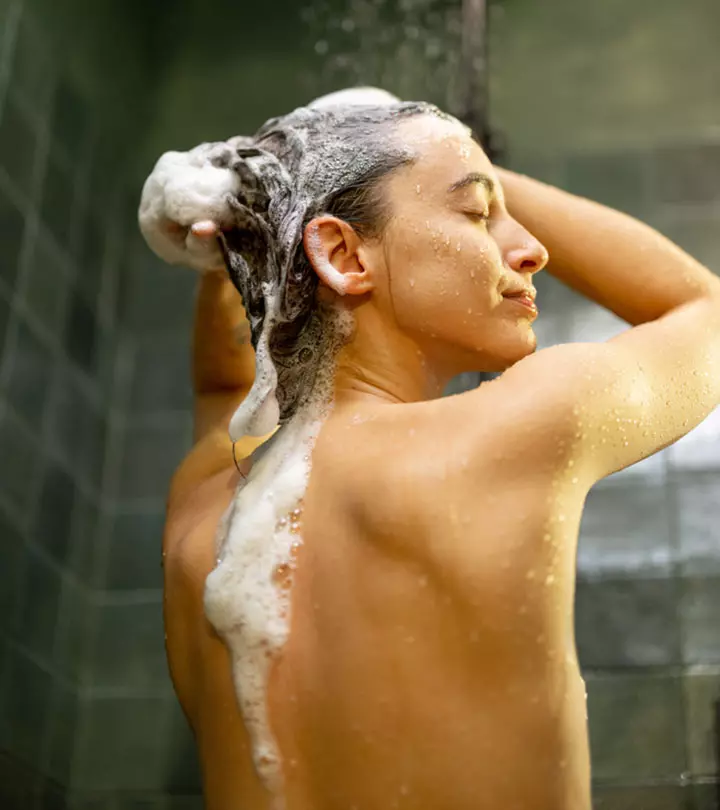
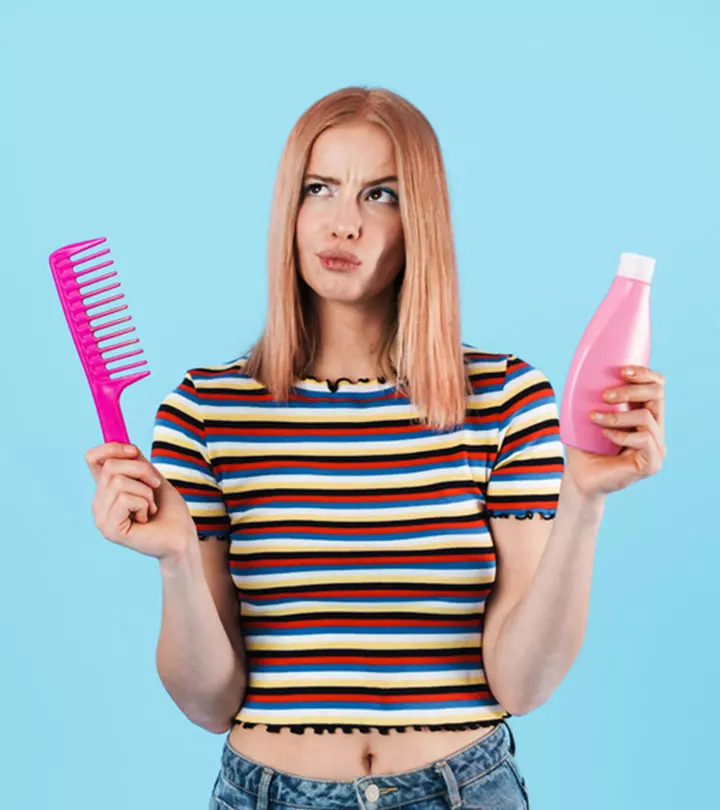

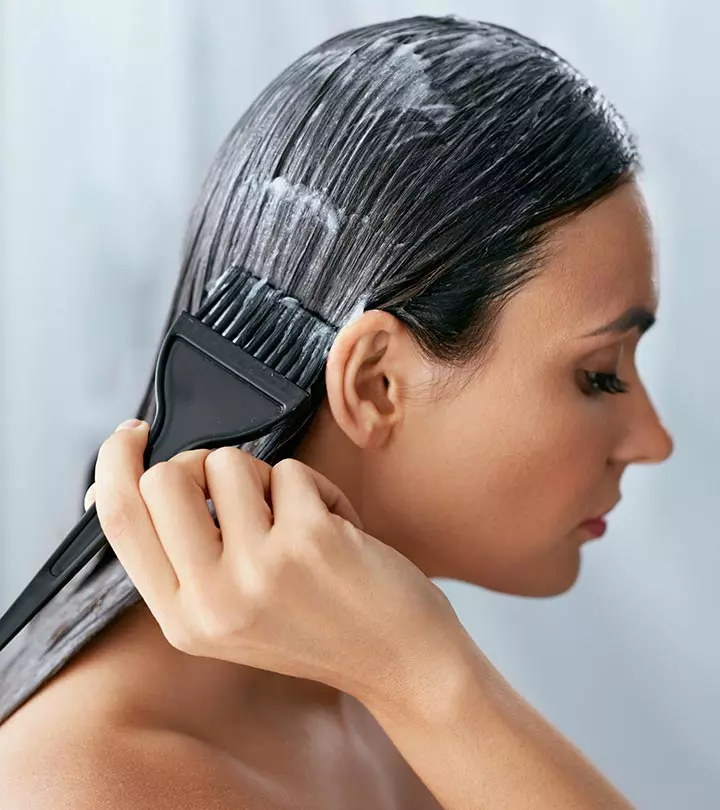
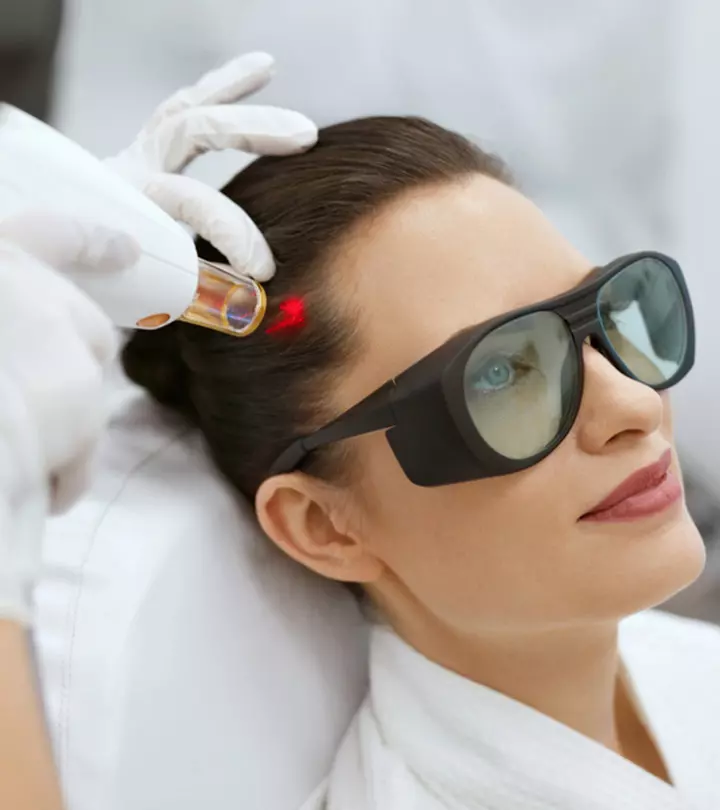
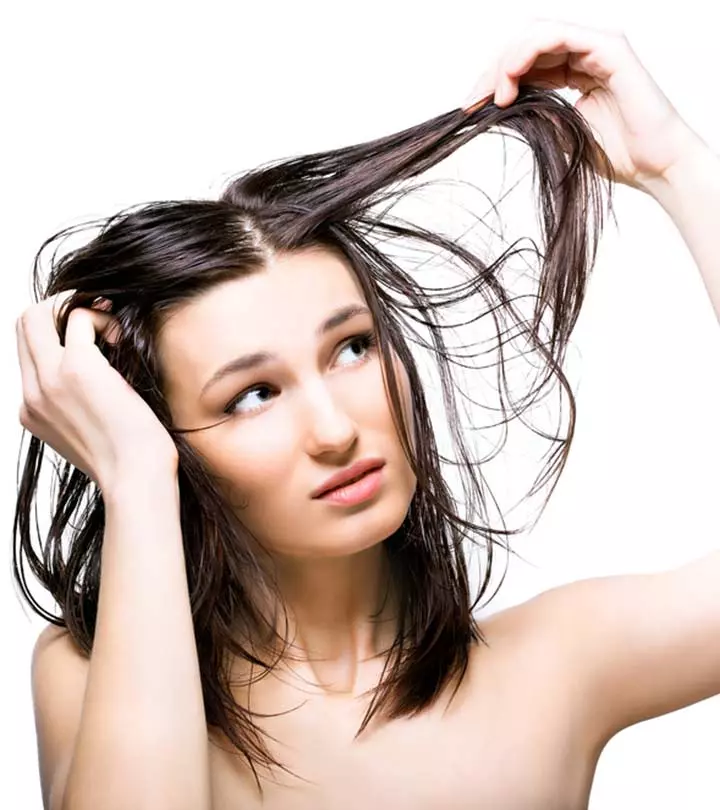

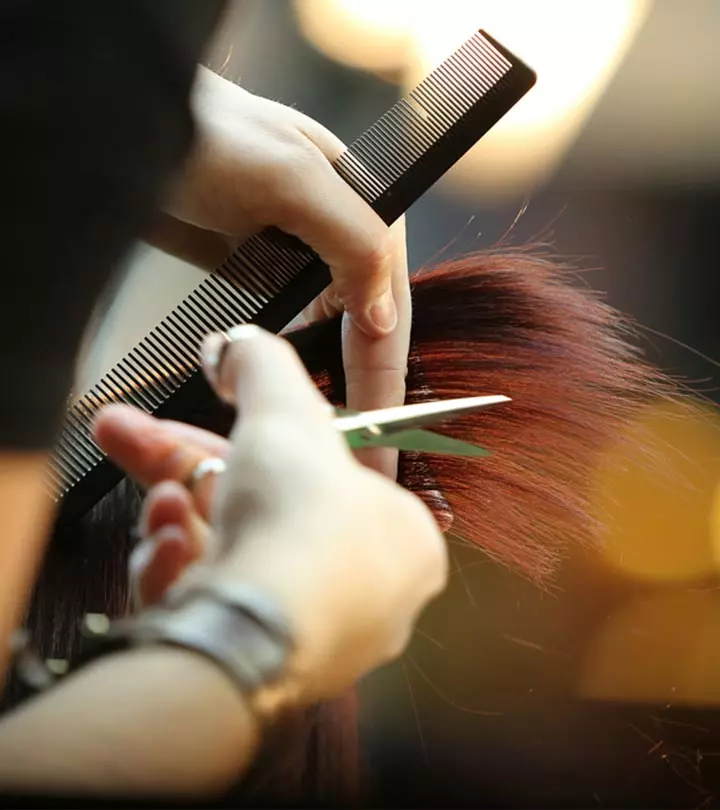



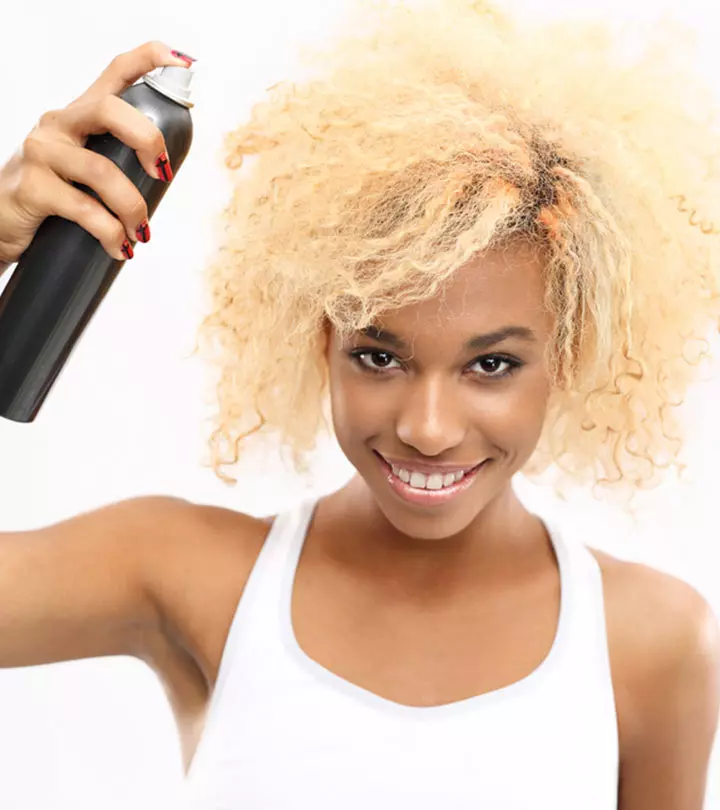
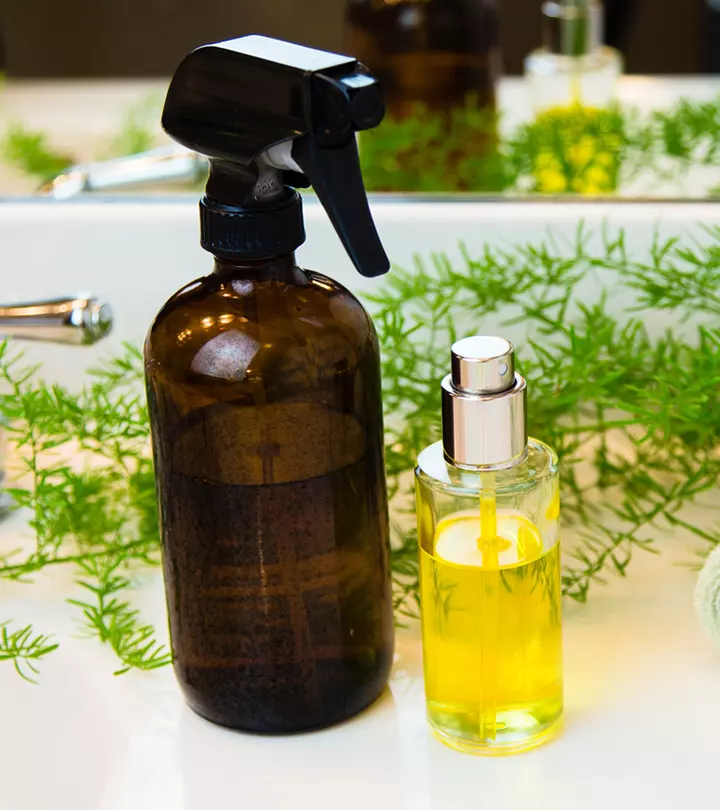
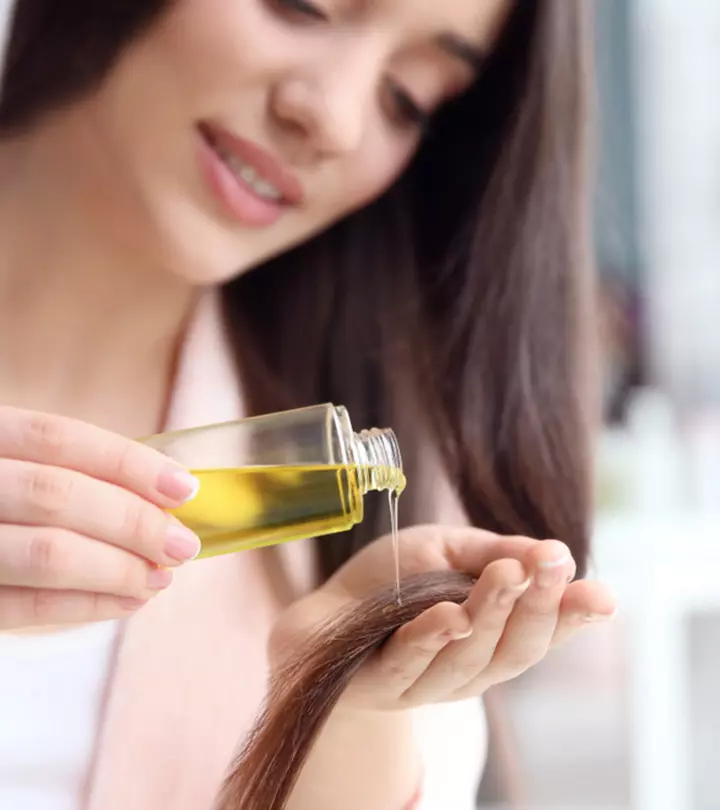
Community Experiences
Join the conversation and become a part of our empowering community! Share your stories, experiences, and insights to connect with other beauty, lifestyle, and health enthusiasts.